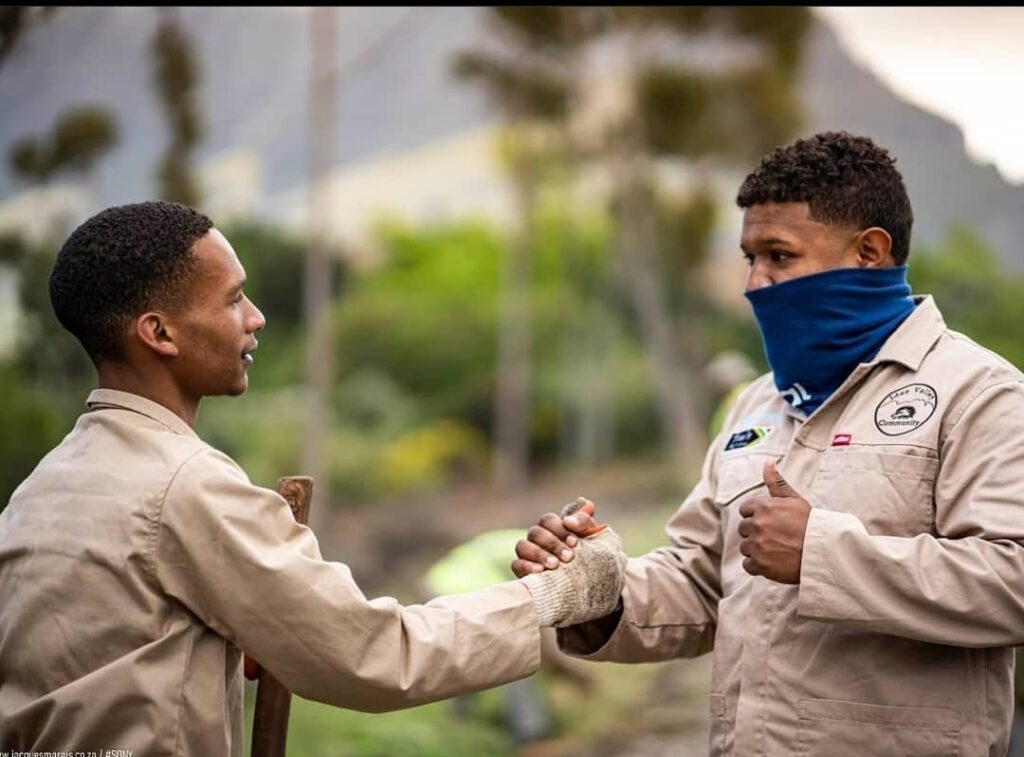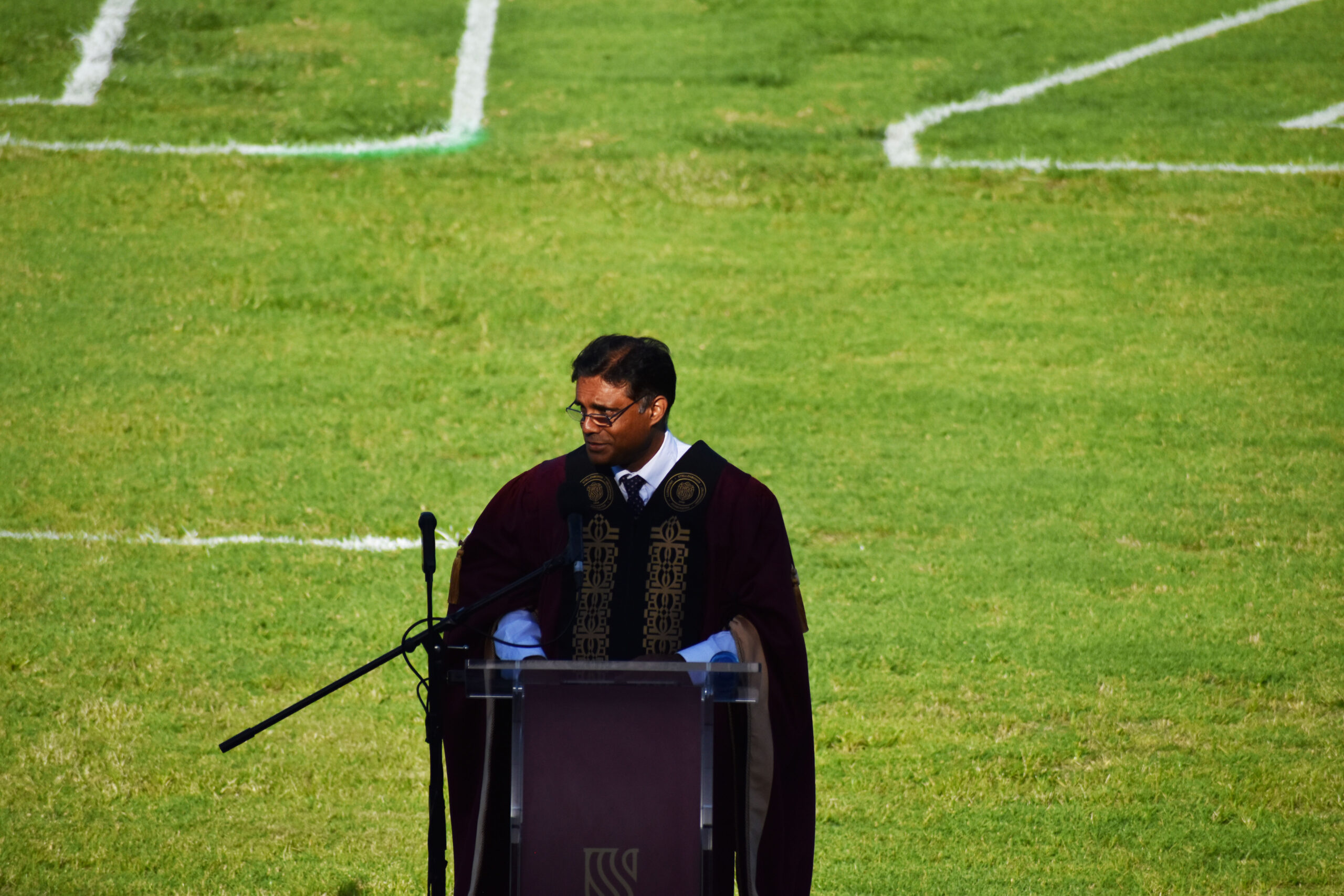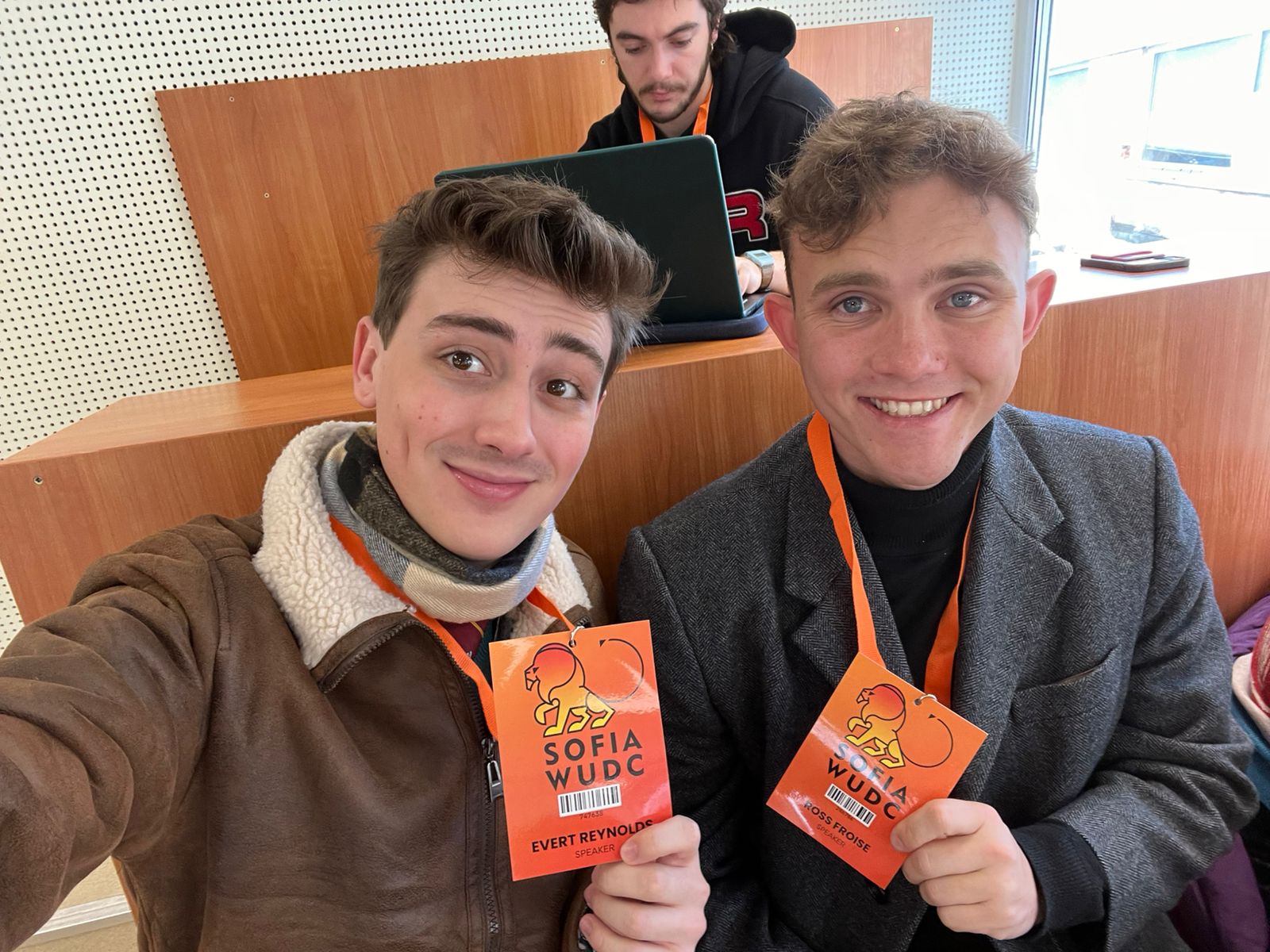
By Flavia Davids
To Idas Valley community leader Eon Hendrikse, activism is a way of life. Hendrikse and his co-founders Etienne Basson and Sylvin Thomas started the Idas Valley Community Trails Organisation, a non-profit (NPO), at the height of the pandemic in 2020.
“Our organisation focuses on giving back identity to coloured people and using the nature area to educate young people on the past. They want to teach their youth to embrace the past and take ownership of their space,” explained Hendrikse.
Through guided nature walks, educational strolls, and cycle rides, the Idas Valley Community Trails Organisation aims to effect social change within the area by addressing the community’s most pressing social issues. These problems include unemployment, poverty and a lack of opportunities. They want to encourage the community to embrace and heal from their traumatic past through nature and fostering sustainability and community wellness.
Hendrikse and his team clean and maintain the Idas Valley Nature Area. They also attempt to make the area safe and accessible while encouraging people to use the space. One of the guided walks hosted by the NPO is the Social Justice Walk, a walk through the nature area hosted every year on 16 June to commemorate the Soweto Uprising of 1976.
In its two years of existence, the NPO has garnered several accolades, including the World Economic Forum Uplink BidiverCities Challenge Top Innovator Award and the finalist position for the BIE Cosmos Prize for Sustainability Expo2020.
Hendrikse noted that despite the NPO’s success, the Idas Valley Community Trails Organisation is struggling to be sustainable. Hendrikse attributes this to a lack of resources, primarily social and financial capital. He believes that Stellenbosch University (SU) would be an ideal partner in the pursuit of effecting social change in the Stellenbosch area. He also believes that the university has “enough resources” as well as the “social capital” to form a partnership that can garner the necessary change. In his address at the recent Social Justice Summit at Boschendal, which centred around restitution, Hendrikse spoke about rebates. He encouraged the university to become involved with the NPO and invest in the development of skills and knowledge in Idas Valley. Hendrikse says that the university claims to be knowledge-centred, but he wonders who they “share their knowledge” with. Hendrikse believes that the application of SU’s restitution statement, which acknowledges and apologises for benefiting from past injustices, could be given traction if the university were to join forces with the NPO. He believes that a partnership between the university and the Idas Valley Community Trials would be beneficial for the entire Stellenbosch, particularly the Idas Valley community. This community was established after they were forcibly removed from the Stellenbosch town centre in order for the university to be built.
‘’I want the narrative to be that we are inviting the university to take hands with the organisation so we can drive social change together,” said Hendrikse.
Hendrikse’s role in the Idas Valley Community Trails Organisation has allowed him to use his leadership skills to give back to his community. He always knew that he had leadership capabilities. As he grew older, he began to develop a better understanding of his purpose in life – being a catalyst for change in his community.
The social issues in his community, such as unemployment, poverty, and a poor education system, inspired him to invest in bringing about change in his community.
“It started in grade 8 when I entered the gates of Paul Roos, and I realised that I formed part of the minority at the school,” said Hendrikse.
“I always went back into my community and encouraged people to rise up from hardship. My activism started when I saw how education could help me to achieve my full potential,” said Hendrikse.
Hendrikse believes that while Idas Valley is riddled with social issues, the area’s biggest problem is centred around identity. Many people in Idas Valley don’t know where they come from, and if you don’t know where you come from, you can’t navigate the path forward,” he said.
“As a community leader, I want to help my people establish and claim their identity. I want to give their history to them so that they understand where they come from and guide them into a future that contributes to their overall wellness and the wellness of the town,” said Hendrikse.



